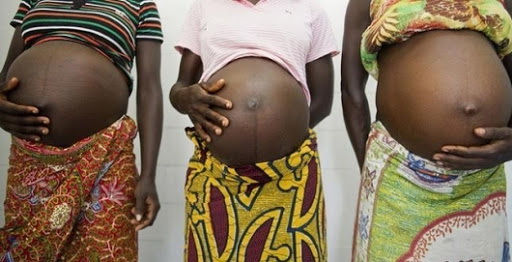
Maternal deaths increase in U/E Region - Situation blamed on inadequate health personnel
Twenty-four institutional maternal deaths were recorded in the Upper East Region by the end of July 2021.
The current figure is seven deaths more than the 17 deaths recorded for the whole of 2020.
This alarming statistics which got stakeholders in the region worried, represented about 114.2 deaths per every 100,000 live births.
The situation has been attributed to inadequate critical health personnel particularly midwives and medical doctors.
As of June 2021, there were 701 midwives in the region to take care of 312,652 women in their fertility age with 52,734 expected pregnancies or deliveries.
A good number of the few midwives available in the region are also aged with chronic conditions, mostly waist pains.
The Upper East Regional Director of the Ghana Health Service (GHS), Dr Emmanuel Dzotsi, made these revelations in Bolgatanga on Monday, August 2, 2021 at the 13th Scientific Conference and Biennial General Meeting of the Ghana Registered Midwives Association (GRMA).
The conference was on the theme: “Evidence from data to champion investments in midwifery; monitor the investments for quality midwifery.”
Highest maternal deaths
Dr Dzotsi noted that the number of maternal deaths recorded in 2021 was the highest in the region in the last three years and observed that if pragmatic measures were not put in place, the situation could worsen.
The regional director further explained that the region did not have enough midwives to meet the demands at the various healthcare facilities and that most of the midwives had advanced in age and were experiencing chronic illnesses which had over the years affected quality healthcare delivery in the area.
“Our region has its unique challenges such as inadequate midwives. As of half of 2021, there were 701 midwives in the region to take care of 312,652 women in their fertility age and 52,734 expected pregnancies or deliveries. Of the few present, majority are aged with chronic conditions, mostly waist pains,” he stated.
Dr Dzotsi indicated that apart from the midwives also lacking adequate refresher training to enable them to provide quality services to clients, medical doctors and other critical health staff were also refusing postings to the region.
He noted that in 2020, for instance, nine medical doctors were posted to the region but only one assumed duty. Additionally, four medical doctors who were posted to the region in 2021 all refused to report for work.
“Most importantly, it is very difficult attracting critical staff to the region, especially doctors, pharmacists, anaesthetists and midwives. There is also a high number of staff requesting postings outside the region,” Dr Dzotsi further lamented.
The regional director underscored the need for critical incentive policies and programmes from all stakeholders to be rolled out to ensure that critical health practitioners were attracted to the region.
That, he said, would contribute to the attainment of the Universal Health Coverage (UHC) and the Sustainable Development Goals (SDGs) especially Goal Three, which placed emphasis on access to quality health care for all by 2030.
Government intervention
The Director General of the GHS, Dr Patrick Kuma-Aboagye, said the government since 2014 adopted and implemented the World Health Organisation’s (WHO) Workload Indicator of Staffing Needs approach and the midwife to population ratio declined significantly.
He said the midwife to population ratio reduced from one midwife to 46,732 people in 2016 to one midwife to 25,523 in 2020.
Furthermore, he said, the indicator showed that about 92 per cent of all health centres in the country had at least a midwife while 57 per cent of health centres had more than one midwife.
The director-general said the government would continue to invest in the training of midwives and other critical health staff to improve upon the healthcare delivery in the country.
